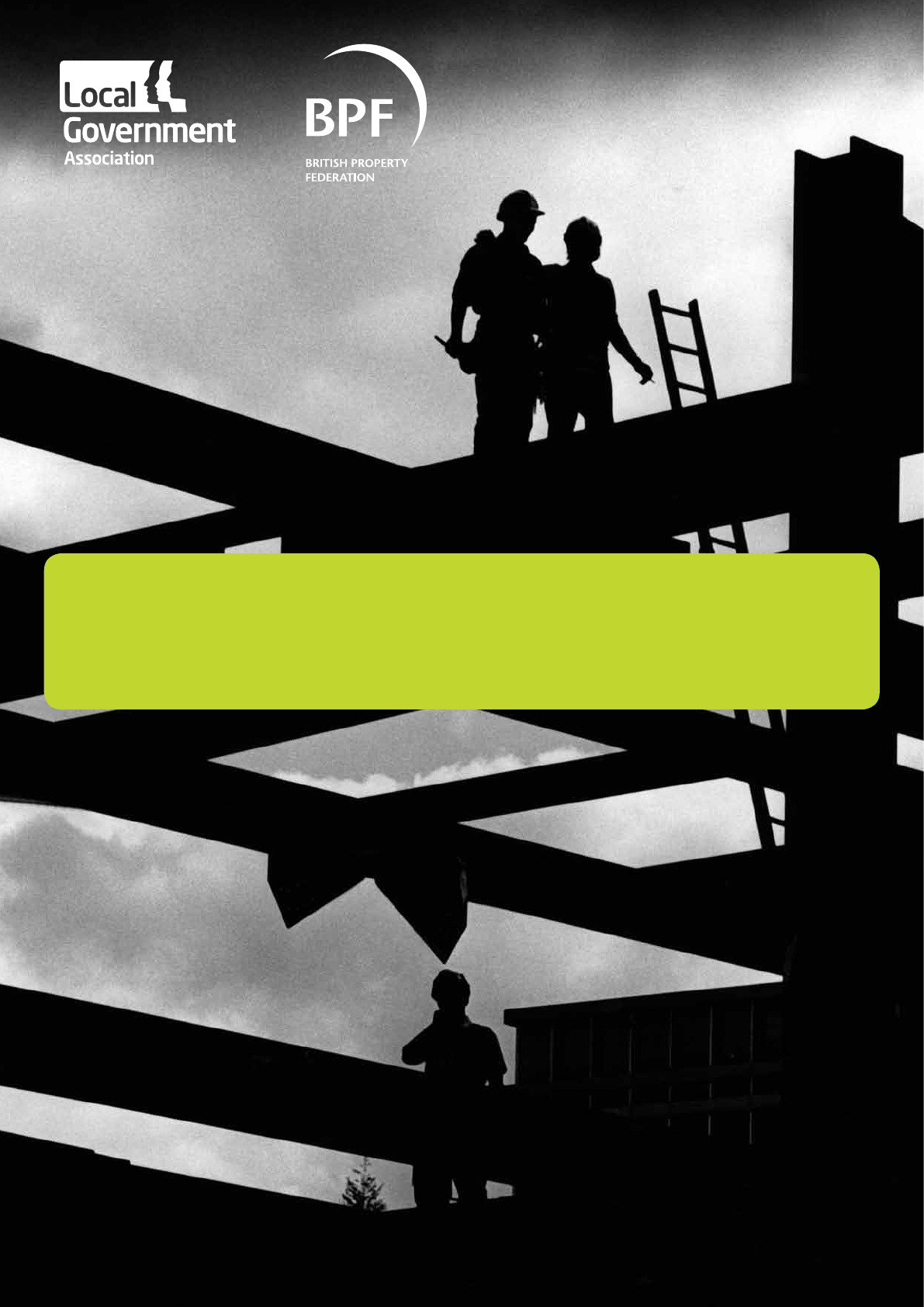
10 commitments for effective
pre-application engagement
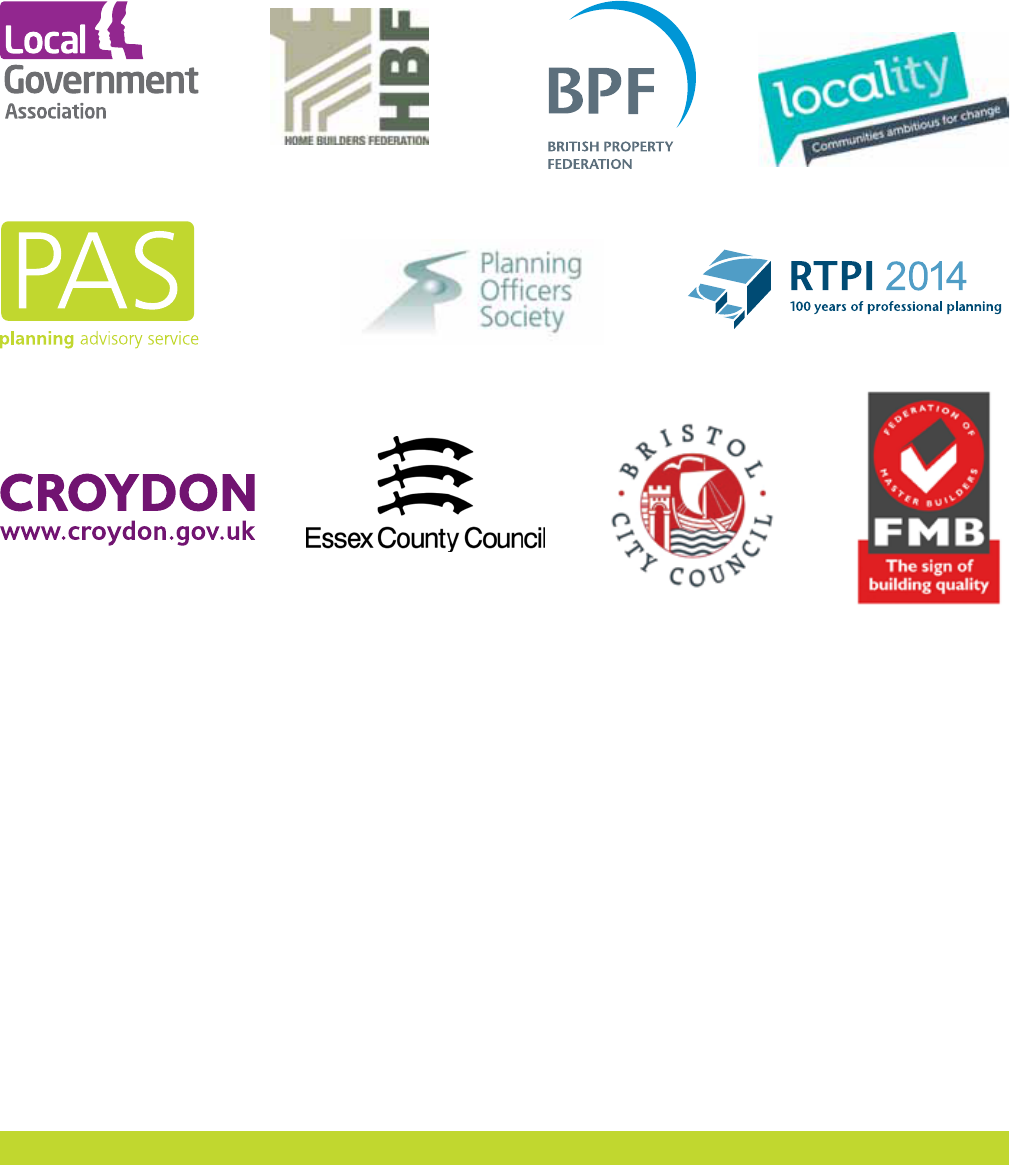
2 10 commitments for effective pre-application engagement
These commitments have been developed by a cross sector working group and are endorsed by:
The five principal statutory consultees (English Heritage, the Environment Agency, the Health and
Safety Executive, the Highways Agency and Natural England) have been closely involved in the
development of these commitments. They are fully committed to effective pre-application engagement
with local planning authorities, with developers, and with local communities in accordance with the
commitments. They commend this document as setting out a clear framework within which they can
further develop and deliver efficient and effective pre-application services to help achieve better,
more sustainable development. They will endeavour to ensure that the commitments are embedded in
their respective approaches to participation in, and management of, pre-application engagement on
schemes where they have a role.
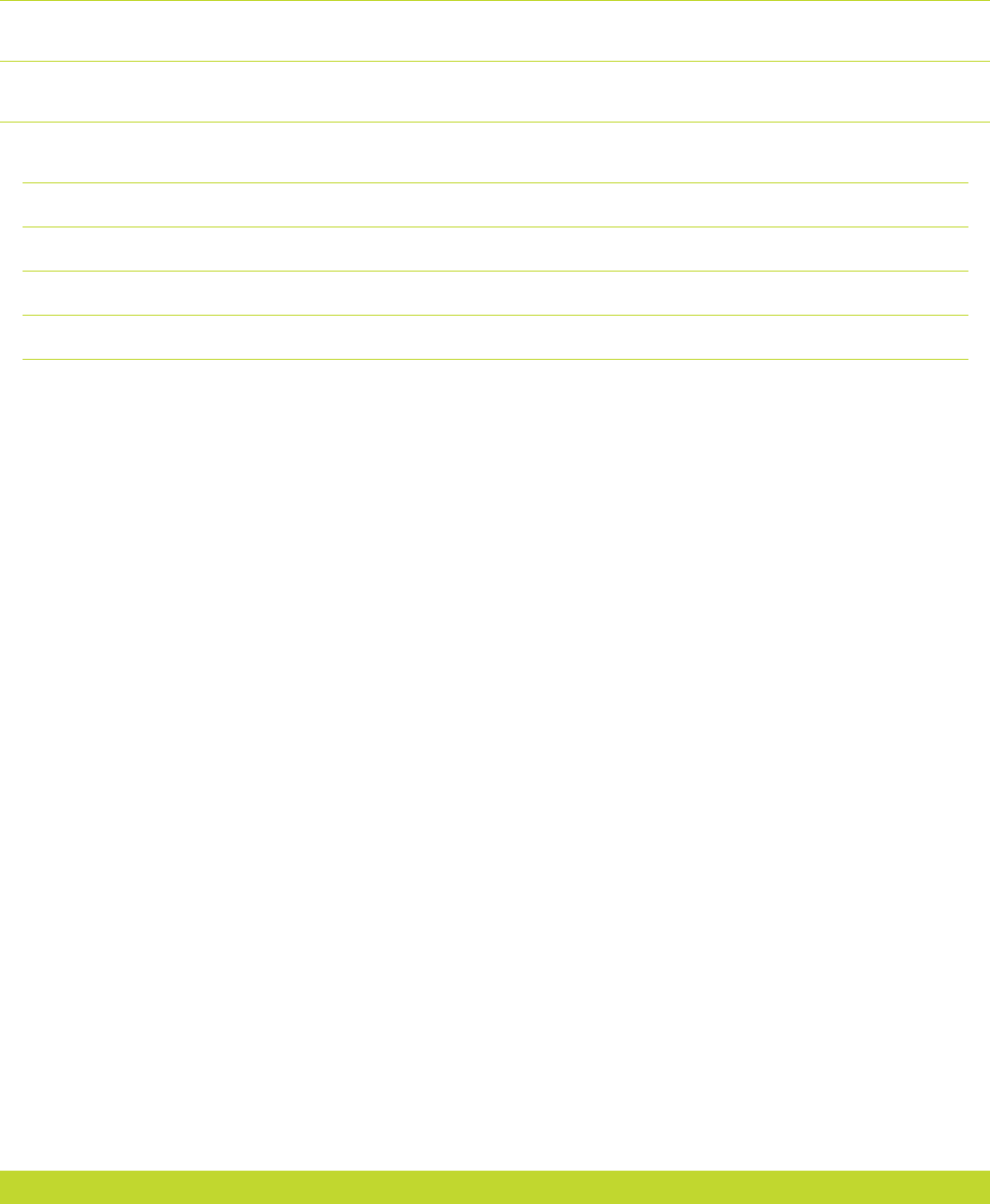
10 commitments for effective pre-application engagement 3
Contents
10 commitments for effective pre-application engagement 4
The commitments 5
Further explanation of the commitments 7-19
Case studies
1. Westminster and Great Portland Estates 8
2. Newcastle and Ryder Architecture 13
3. Bristol, North Somerset and West of England Partnership 15
4. Eastleigh and the Highwood Group 16

4 10 commitments for effective pre-application engagement
10 commitments for effective
pre-application engagement
Pre-application engagement should lead to
high quality and appropriate development
schemes being granted planning permission
more quickly. Early, collaborative discussions
between developers, public sector agencies and
the communities affected by a new development
can help to shape better quality, more accepted
schemes and ensure improved outcomes for the
community. These discussions also avoid wasted
effort and costs.
With so much at stake and so much to gain
for all those involved in bringing forward new
development, each party must work to make
pre-application discussions as effective and
productive as possible. Each should have a clear
understanding of their roles and responsibilities
in the process and work in a way that avoids
duplication and wasted effort wherever possible.
Representatives of all those groups most involved
in these discussions have come together to agree
a set of commitments that all the sponsors have
committed to.
These commitments set out the positive spirit that
should be embodied pre-application engagement
and the arrangements that should make early
exchanging information and advice better value
for all.
Each developer, local planning authorities (LPA),
statutory agency and community group will
need to decide how these principles should
be incorporated into their individual working
practices.
We jointly hope that by identifying responsibilities
along with benefits, all parties will be see that
working in line with these principles will reduce
frustrations with the planning system, and
generate savings alongside better development.
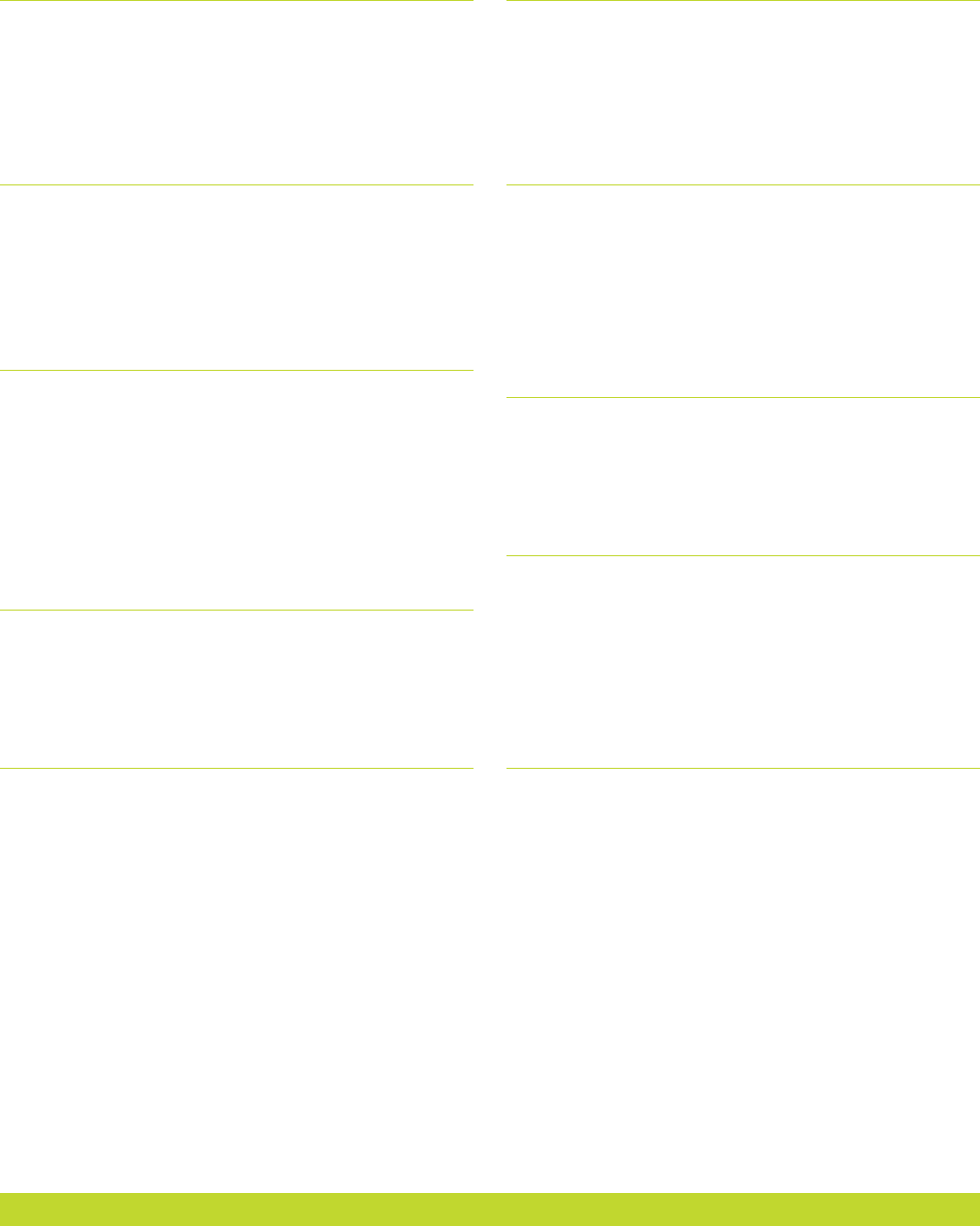
10 commitments for effective pre-application engagement 5
The commitments
1
Pre-application engagement should
enable sustainable development to
proceed quickly and smoothly from proposal
to completion. This is a co-operative process
that requires a positive, proactive commitment
from all participants to achieve this goal.
2
Those providing pre-application
services should offer a range of
timely, effective services proportionate
to the scale and complexity of proposed
development. The process, timescales, costs
and outputs should all be clearly set out.
3
Prospective applicants should select
the level of pre-application engagement
necessary to adequately deal with the
issues raised by the scale and complexity
of the proposed development. Failure to
engage at the right time or at the right level
could have an adverse impact on the timely
consideration of the subsequent application.
4
Pre-application services should be
delivered in a timely manner and
demonstrate good value for money, irrespective
of whether the provider of pre-application
services makes a charge for them.
5
Pre-application discussions should bring
together the right people to address all
of the development issues. All parties should
have processes in place to ensure that advice
given and commitments made are carried
through to application and permitting stages.
6
Pre-application engagement should
be based on an open exchange of
the information needed to allow all the
relevant matters, including all obligations
and viability, to be considered prior to the
submission of a planning application.
7
Collaborative working to find deliverable
solutions will necessitate that, whilst the
development plan must be the starting point for
discussion, the requirements of all parties should
be given consideration. Planning Performance
Agreements (PPA) are recommended to
deal with timing issues and constraints.
8
LPAs should ensure that their pre-
application offer provides an
opportunity for councillors to be actively
involved in pre-application discussions
as part of a transparent process.
9
All parties should consider engaging with
local communities at the pre-application
stage about development proposals in their area.
This early engagement should be proportionate
to the impact on the wider community
and enable community representatives to
inform and influence the proposals.
10
All those involved in the pre-application
engagement should maintain an
agreed record of information submitted, advice
given and, where appropriate, agreements
reached during pre-applications discussions.

6 10 commitments for effective pre-application engagement
Wealden Homes and Sevenoaks District Council engaged early to develop this scheme to transform
a burned out pub into homes that the residents feel fits the character of their village.
“We would like to say how pleased we were with the considerate way in which the houses were
built.Now they are finished, the houses look very much in keeping with the village and look like
they have been there for many years.”
Local homeowner

10 commitments for effective pre-application engagement 7
Further explanation of the commitments
1. Pre-application engagement should enable sustainable development
to proceed quickly and smoothly from proposal to completion. This is a
co-operative process that requires a positive, proactive commitment
from all participants to achieving this goal.
The purpose of the planning system is to
contribute to the achievement of sustainable
development. At the heart of the National
Planning Policy Framework (NPPF) is
a presumption in favour of sustainable
development, which should be seen as a golden
thread running through both plan-making and
decision-taking.
Engagement between local planning authorities,
potential applicants for planning permission, the
statutory consultee bodies and the community
during the pre-application phase (NPPF
paragraphs 188-195) should be directed towards:
• smoothing the path to development by
examining the issues, mitigating any adverse
impacts and capturing the benefits
• ensuring that the resulting development
has benefitted from an appropriate level of
engagement with the community
• avoiding wasted cost and effort by identifying
poor proposals that cannot meet planning
policy early on
• fostering an integrated rather than sequential
consideration of planning and non-planning
consents wherever possible.
To make this process effective and reap the rewards
of a clearer path through the planning system, all of
those involved need to engage in a positive and co-
operative manner at the earliest possible stages.
For all participants, there is an obligation to
commit to better, more integrated working and
to demonstrate willingness to actively manage
resources and processes in order to give priority
to engagement at the pre-application stage.
For potential applicants and their advisors, this
will mean that sufficient time is allowed in the
building programme for the appropriate level of
engagement prior to the submission of a planning
application.
A co-operative approach includes the provision
of information and a willingness to engage openly
about viability of the scheme and the aspects of
a development that can be modified.
For local planning authorities and the statutory
agencies, it will mean that guidance and advice
to applicants should be given in a spirit of finding
solutions and giving clear direct opinions. It also
means that resources should be managed to
ensure that meetings are set up and advice given
within timeframes that do not hold up development.
Decision makers can adopt a positive attitude by
demonstrating a predisposition towards proposed
development that is supported by development
plan policies, provided they preserve an open
mind in line with the notes for Principle 8.

8 10 commitments for effective pre-application engagement
Case study
When Great Portland Estates Plc. bought a
redundant mail sorting office in late 2011, they
wanted to get a planning permission in place
to begin work when the Royal Mail vacated in
2013.
This large city block, just off Oxford Street,
provided a great regeneration opportunity,
but also posed challenges. Westminster
Council and the developer worked closely
together to identify the key principles for a
new development; to establish the design
concepts and work through the public realm
improvements.
In this sensitive location, it was important that
all interests were involved. The pre-application
process was well managed to achieve a
collaborative environment in which the
community could contribute to ensure that local
needs were being met and affordable housing
providers engaged to ensure maximum
provision. Council resolved to grant the
subsequent application in October 2013 with
demolition expected to begin in 2014.
Westminster and Great Portland Estates

10 commitments for effective pre-application engagement 9
2. Those providing pre-application services should offer a range of
timely, effective services proportionate to the scale and complexity
of a proposed development. The process, costs and outputs should
all be clearly set out.
Pre-application engagement between potential
developers and councils and statutory agencies
is for the most part discretionary and not all
proposed development will require the same
degree of scrutiny and discussion during the
pre-application phase. The needs of an applicant
may vary depending on his or her experience and
the professional advice they have available during
the preparation of their proposal.
Therefore LPAs and statutory agencies should
make sure they are able to meet the range of
needs with accessible pre-application services,
tiered to accommodate the varying needs of
minor to complex developments.
In practice, the services offered will vary
depending on organisational circumstances. But
in all cases they should provide value for money
and accord with the other commitments set out in
this document.
This includes providing applicants with the
information they need to make a choice about
what services they wish to use, including details
of published information and guidance that is
generally available.
For services options that include advice and
discussion in relation to a specific proposal,
the LPA should set out:
• the cost of the service (if a charge is made)
• the process that will be followed ( e.g.
meetings, facilitated discussion with statutory
consultees, with councillors, a planning
performance agreement etc.) and who will be
involved in providing this service
• the expected output e.g. written advice on a
single submission or, active discussion over a
number of proposals leading up to agreements
including s106 obligations, and s278
• the timetable for providing this service.
LPAs and statutory agencies have a responsibility
to guide potential applicants to the level of
service appropriate to the scale and complexity
of the proposed development.
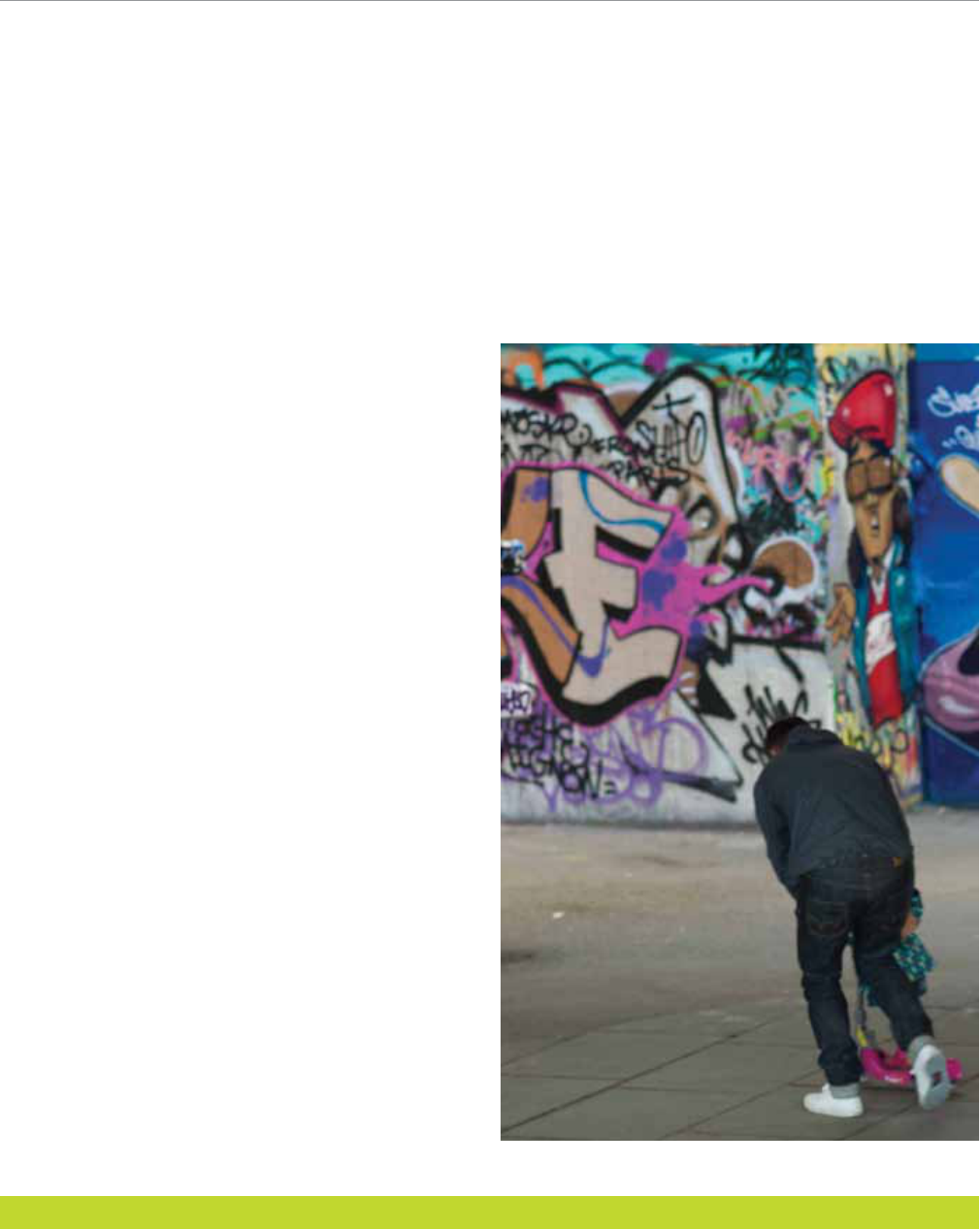
10 10 commitments for effective pre-application engagement
3. Prospective applicants should select the level of pre-application
engagement necessary to adequately deal with the issues raised by
the scale and complexity of the proposed development. Failure to
engage at the right time or at the right level will adversely impact
on the timely consideration of the subsequent application.
It is recognised that pre-application engagement
is not compulsory (except in specific instances
as set out in planning guidance) and the
potential applicant is free to choose the level
of engagement that they feel represents best
value for them.
With this discretion comes responsibility.
Offering and delivering a range of quality pre-
application services will be a significant factor
in demonstrating that the LPA and statutory
agencies have taken a positive approach to the
development process.
If a prospective applicant fails to engage at an
appropriate level, or at a time when proposals
can be modified to meet legitimate concerns, this
is likely to lead to the application process being
more costly and lengthy.
Unresolved issues may emerge during the
consideration of the application and the
opportunity to modify application proposals is
likely to be restricted.
Similarly, should a prospective applicant with
a large development proposal choose not to
engage in a planning performance agreement the
level of certainty for all parties will diminish.
In approaching pre-application engagement,
prospective applicants should be clear in regard
to their expectations in terms of what they want
to achieve from the process, in terms of both
content and timetable.
Openness about both expectations and
constraints will help all parties to prioritise
resources and work towards a successful
outcome.
Southbank Skate Park, London

10 commitments for effective pre-application engagement 11
4. Pre-application services should be delivered in a timely manner and
demonstrate good value for money, irrespective of whether the provider
of pre-application services makes a charge for them.
All parties involved in development should be
aware of the wide ranging benefits that effective
pre-application discussions can have for their
organisation.
LPAs and statutory agencies can save money by
avoiding costly processing of unacceptable or
deficient proposals and reducing the likelihood
of costly appeals. There is an incentive in both
financial and development quality terms to
providing an efficient value for money service that
prospective applicants will want to use.
For the potential applicant, the preparation
and submission of an application involves
considerable expense. Greater certainty makes
better commercial sense than speculative or
incomplete applications, which are more likely to
be delayed or unsuccessful. However, it is clear
and reasonable that developers will only choose
to participate in pre-application discussions if
they feel they are getting value for money and the
processes are delivered in a timely and efficient
manner.
Many councils and statutory agencies make
a charge in order to recover all or part of the
cost of providing pre-application services. If no
charge is made, resources need to be identified
from elsewhere in the organisation in order to
support the provision of efficient and timely pre-
application engagement.
Legally, LPAs can only charge for the recovery of
the costs involved in providing a pre-application
service. Statutory agencies are governed by
Treasury guidance in “Managing Public Money”
July 2013.
In setting charges the providers should be open
about the basis for the charge so that users
can make an informed choice from the options
available.
The calculation of the charge should be arrived
at through a consistent methodology, defining
staff costs and time and other costs in order
to promote a more uniform approach from one
authority to another.

12 10 commitments for effective pre-application engagement
5. Pre-application discussions should bring together the right people
to address all of the development issues. All parties should have
processes in place to ensure that advice given and commitments made
are carried through to application and permitting stages.
A positive and collaborative approach to solving
problems requires having the right people
engaged in the conversation and acting in a
concerted way.
It is best if individual conversations between
developers, public bodies and the community
are co-ordinated. This facilitates comprehensive
consideration of issues, promotes the smoothest
possible process for arriving at solutions and
ensures that agreements are shared.
The LPA will usually be best placed to take this
co-ordinating role, albeit that more detailed
discussions, for example between prospective
applicants and statutory agencies or community
groups, may take place in other meetings.
To help build up trust in the output from pre-
application engagement, all participating parties
must take a corporate approach and ensure that
wherever possible people with appropriate levels
of authority to speak for their organisation are
involved.
It also means that LPAs and statutory agencies
need to have processes in place to ensure that
advice given and commitments made are carried
through from pre-application to following stages in
the development process.
LPAs (especially in two tier areas) should ensure
that the multiplicity of interests they represent
– planning policy, highways, design, economic
development, ecology, heritage and so on, are
considered comprehensively as part of detailed
discussions, especially on large proposals.
Every attempt should be made to ensure that the
council speaks with ‘one voice’.
The same principle applies to statutory agencies,
both individually and, wherever practical,
acting in concert. The advice should integrate
considerations that relate to permitting regimes
albeit that these may be formally considered
further through the development process.
Where community groups, such as parish and
town councils, act as community representatives
in pre-application discussions, they should make
efforts to ensure that they canvass the views of
the wider community and bring these interests to
the table.
These groups also have an important role in
disseminating information back to the community,
where possible building understanding of the
proposals.

10 commitments for effective pre-application engagement 13
© Kristen McCluskie, www.kristenmccluskie.com
Case study
Securing the future of the former Cooper’s
Motor Mart in Newcastle posed many
challenges. The Victorian building had a rich
local history and stands on top of the buried
remains of Hadrian’s Wall.
Local architects RyderHKS on behalf of
the developer Hanro Group, approached
Newcastle Council and English Heritage
jointly for pre-application discussions with a
view to creating new office spaces within the
existing structure. With the right people in the
room and a positive, pragmatic approach to
finding solutions, the elements of less historic
significance that could be replaced were
identified.
The architects produced a bold scheme that
acknowledged the building’s most historically
significant features and protected the site’s
archaeology. Technical problems – such as how
to provide natural light in former stabling areas
– have been solved and the new additions are
innovative, while respecting the heritage values
of the building.
The Roman remains beneath have been
recorded and are now preserved in situ. The
result is an attractive new business space in a
central area of the city.

14 10 commitments for effective pre-application engagement
6. Pre-application engagement should be based on an open exchange
of the information needed to allow all the relevant matters, including all
obligations and viability, to be considered prior to the submission of a
planning application.
Pre –application engagement should provide
an opportunity for all the necessary information
for the relevant material considerations to be
identified and thought about at an early stage.
The level of information provided will depend
on the stage in the project development and the
scale of the proposal. For major applications,
the goal should be that by the time the planning
application is submitted, all information pertinent
to the decision making is on the table.
This should encompass plans, design and
access statements, impact studies, a draft
S106 agreement, estimated S278 costs and the
requirements of statutory agencies. This process
will allow developers to have full knowledge of
the costs and the impact on viability and avoid
protracted negotiations that will hold up delivery.
It will also allow the community to fully understand
both the impacts and the benefits of the
proposed development. As with other principles,
proportionality is the key and what is appropriate
for a major proposal will not be required for a
minor development.
The LPA has an important role as co-ordinating
this exchange of information. It is well placed
to establish a ‘development team approach’ to
avoid uncoordinated advice from a number of
organisations at different stages in the process
putting contradictory constraints on the developer.
Although statutory agencies will have their own
pre-application offer, subject to these over-
arching principles, the council will have the role of
facilitating the integration of what could otherwise
be parallel streams of discussion.

10 commitments for effective pre-application engagement 15
7. Collaborative working to nd deliverable solutions will necessitate that,
whilst the development plan must be the starting point for discussion,
the requirements of all parties should be given consideration. PPAs are
recommended to deal with timing issues and constraints.
Pre-application discussions will be most efficient
when the council has an up-to-date local plan
with published policies to guide sustainable
development within its area. Potential applicants
should brief themselves on the policy framework
to make sure that their proposal broadly conforms
to local aspirations set out in the plan policies.
The opportunity to bring a development
forward will often be constrained, particularly
by timescales and the availability of funding.
Councils and statutory agencies need to
recognise these considerable constraints and
wherever possible adapt the process to meet
these needs as part of a positive approach.
PPAs could be more widely adopted by all parties
as a means to setting out an agreed timetable
for the consideration of development proposals.
This flexible tool can aid project management
from pre-application discussion stage through
to post decision consideration of conditions and
implementation stages.
Although a Planning Performance Agreement
must be established before a planning application
is formally submitted to be able to remove the
application from the 13 (or 16) week target,
the principles of shared milestones to manage
progress can be used at other stages of the
development process. LPAs should use pre-
application discussions to put in place simple,
flexible and proportionate agreements, tailored to
the requirements of a particular project.
Case study
Bristol City Council have used planning
performance agreements as a tool to provide
a project management framework for major
applications for some time. So when they had
a scheme for the South Bristol Link, a major
highways work that involved them, North
Somerset District Council and the West of
England Partnership, they used a PPA to set out
the issues, the principles that each party would
commit to and a timetable for dealing with this
complex cross boundary proposal.
The agreement recorded the joint approach to
consultation and engagement and established
project governance. This was a more
complex PPA than Bristol’s usual single page
agreements, but reflects the multiplicity of
issues and participants in a clear proportionate
framework. Milestones took the project
from initial work in early 2012 through to the
submission of the application in July 2013.
Consent was granted in December 2013.

16 10 commitments for effective pre-application engagement
8. LPAs should ensure that their pre-application offer provides an
opportunity for councillors to be actively involved in pre-application
discussions as part of a transparent process.
Developers often value pre-application
discussions for the chance to brief councillors on
the proposals they will consider at committee, and
to gain understanding of what elected members
understand are the pressing concerns of their
constituents. Ward councillors value being well
informed about emerging development proposals
so they can advise their constituents and take a
leadership role by encouraging high quality and
appropriate development in their area that reflects
the needs of their communities. Section 25 of the
Localism Act 2011 makes it clear that councillors
can both campaign and represent the views of
their constituents and take part in the planning
committee determining the application.
Councillors can be predisposed on a matter and
comment on individual aspects of a development
provided he/she is not predetermined ( i.e. has a
closed mind) on the development as a whole. As
the decision-takers, committee members will be
expected to champion good design, maintaining
a safe highway network, delivering their council’s
affordable housing strategy and so on. They
can comment on these aspects of a scheme
during pre-application discussions without fear
of prejudicing their decision-making role. Best
practice guidance on this and other matters is set
out in the LGA guide “Probity in Planning 2013”
The arrangements for involving councillors will vary
between authorities, but should generally include
a range of options (proportionate to the scale and
complexity of the proposal) for officers to bring
councillors and developers together for the chance
to exchange ideas and develop a scheme that
meets the needs of the area.
These arrangements should take appropriate
account of the need for transparency and inclusion
of the community.
Case study
Eastleigh Borough Council allocated a site in
Bursledon Parish for housing in its draft Local
Plan. Local developer Highwood took forward
developing the greenfield site adjacent to the
A27 close to the M27. Highwood made a point
of talking to the local Parish Council, Borough
Councillors and the Council Leader to establish
general support before starting a formal pre-
app discussion.
After meeting the Parish Council and
Borough Councillors separately twice before
an application was developed, and having
account of neighbour views, a scheme for
90 homes emerged. While this was lower
than the allocation for the site, the proposal
met the reasonable objectives of site
neighbours. It made new footpath links from
an existing community down to the Hamble
River, increased public open space and was
designed to allow a smaller development to
come forward on a neighbouring site. “What
could have been a highly contentious site was
made simple, just by getting people together
to talk” said Cllr Keith House, leader of
Eastleigh Borough Council.

10 commitments for effective pre-application engagement 17

18 10 commitments for effective pre-application engagement
9. All parties should consider engaging with local communities at the
pre-application stage discussions about development proposals in their
area. This early engagement should be proportionate to the impact on
the wider community and enable community representatives to inform
and inuence the proposals.
Potential applicants and LPAs should embrace
the opportunity to seek the views and suggestions
of the community during pre-application
discussions.
This is particularly where parish and town
councils and neighbourhood forums are involved
in developing neighbourhood plans for their area.
Involvement of the town and parish councils
and neighbourhood forums in early discussions
is therefore both wise and respectful. But,
even where communities have not begun
neighbourhood planning, active engagement
with the community should facilitate a two
way conversation enabling the modification of
proposals to meet the needs and views of local
people.
It also provides both the prospective applicant
and councillors with an opportunity to brief the
community on the proposal.
Arrangements for engaging communities should
be proportionate to the scale of development.
The issue of when to engage communities in
pre-application discussion, and what information
should be disclosed, is a difficult one.
The advantages of early engagement with
communities need to be balanced against any
adverse effects that disclosure may cause – not
least of which is that commercial confidentiality
may dissuade developers from seeking pre-
application guidance.
The Freedom of Information Act 2000 includes a
presumption in favour of disclosure unless this
would cause adverse impacts (Regulation 12(5)
Environment Information Regulations 2004).
These provisions affect both LPAs and statutory
agencies.
Prospective applicants can make a reasoned
request at the start of pre-application discussion
to keep information confidential for a period. It
is the legal responsibility of a LPA or agency to
decide each case on its merits and to keep this
under review.
This process of review should encourage LPAs,
having consulted with the potential applicant, to
disclose information that is no longer confidential
so that the community can access as much
information as possible.

10 commitments for effective pre-application engagement 19
10. All those involved in the pre-application engagement should
maintain an agreed record of information submitted, advice given
and, where appropriate, agreements reached during pre-applications
discussions.
LPAs and statutory agencies should keep a
record of all information considered, advice
given, and any agreements reached at pre-
application stage and to check that this advice
applied consistently throughout the planning
process.
Having agreed notes of discussions is valuable
for prospective applicants, and helps to provide
the transparency that is needed to build public
trust in the integrity of these discussions.
These will prevent misunderstanding and
confusion between participating parties. The
agreed notes should normally be made available
to the public when the subsequent planning
application is validated if not earlier (see notes
for principle 9).

Local Government Association
Local Government House
Smith Square
London SW1P 3HZ
Telephone 020 7664 3000
Fax 020 7664 3030
Email [email protected]v.uk
www.local.gov.uk
For a copy in Braille, larger print or audio,
please contact us on 020 7664 3000.
We consider requests on an individual basis.
L14-12
© Local Government Association, January 2014
